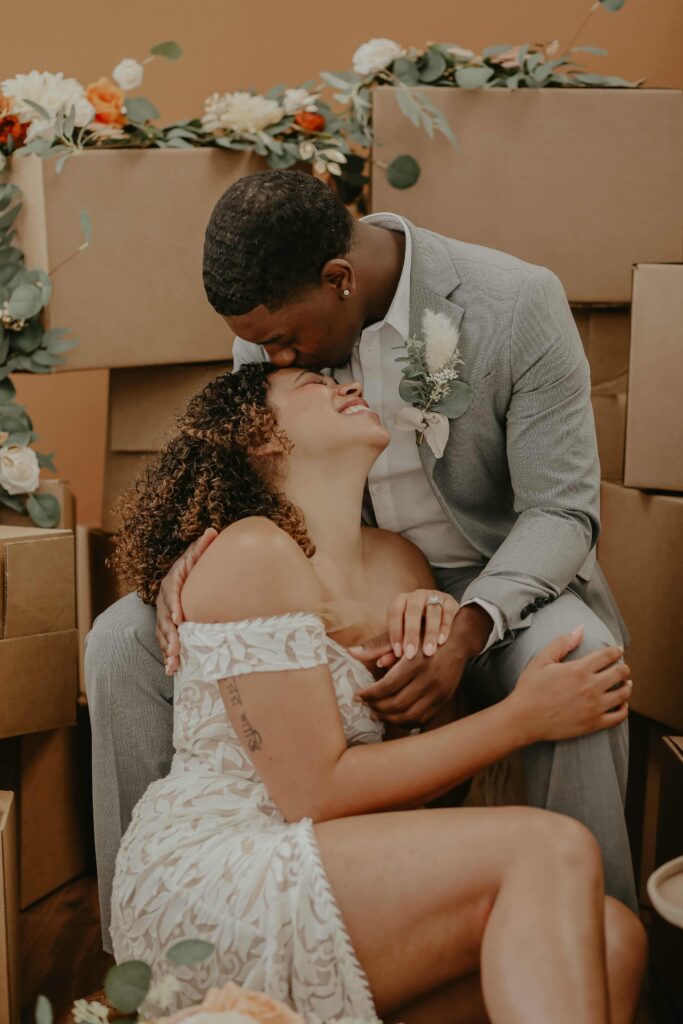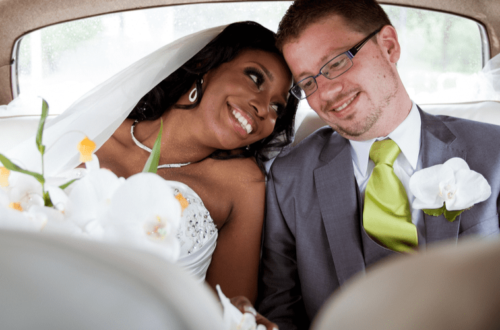9 Things Everyone Should Know About Marriage In Uganda
Have you ever thought about getting married in Uganda? Marriage itself is a serious commitment that couples should take seriously. But getting married in a foreign country like Uganda is a whole other subject. That’s because you consider government policies, cultural traditions, and restrictions that can affect your marriage. So if you’re planning marriage in Uganda, this guide is just for you.
The Basics Of Getting Married In Uganda
1. Important Social Gathering

Families in modern-day Uganda continue to follow the traditional marriage ceremony, known as “The Introduction” or “The Giving Away Ceremony”. In Uganda, marriage is an important social gathering that brings people together.
Men and women are free to pick their partners, but the bride’s family must agree to the marriage. Churches will not marry a couple unless both parents have given their permission. Muslims and Christians are both likely to marry inside their respective religious groups. 90% of the time, Christians can only marry Christians.
While the exact rules differ by ethnic group, in general, the couple cannot come from the same clan. Clans are usually widespread—the Baganda people have only 46 clans with a population of 5.8 million people. Before giving any clearance, family members conduct background checks on each other’s families.
2. The Introduction Ceremony
The Introduction Ceremony involves the couple accompanied by a small party of the groom’s closest relatives and friends visiting the bride’s home for a familiarization tour. They decide the details of the Introduction Ceremony on the day, like the dowry for the bride and the delegation.
On the agreed-upon Introduction Day, a committee from the groom’s family—usually including parents, brothers, sisters, relatives—visits the bride’s home with an assigned speaker, who is typically an elder with excellent knowledge of Ugandan culture, to represent them in different talks with the bride’s family.
The hosts greet the groom’s family and escort them into the house with the Omuko (the bride’s brother or another close male relative). Upon arrival, he is given “Enkoko yo’muko” (a rooster for the brother-in-law) before agreeing to welcome them in.
By the time the bride’s delegation arrives, elders from the bride’s family have already taken their seats in preparation for the visit. As a tradition, guests are provided roasted coffee, usually presented by the chosen elder of the hosts) as a symbol of officially establishing a bond between the two families after greeting the hosts and sitting down.
The host elder asks the groom’s side elder to present the objective of the visit after everyone has settled in. After a cordial introduction, the visiting elder reveals that he has come on this visit to seek permission to marry. Following this pronouncement, there is a lengthy discussion with both elders on both parties, sometimes provoking arguments. Still, everything is respectful and civilized, employing local proverbs and fables to support their discussion.
Related: The Best Ugandan Dating Sites To Use In 2021
3. Bride Price

A male suitor has to pay a bride price, determined by cultural terms that vary from clan to clan.
The bride price is not going away as a cultural phenomenon. People consider it compensation for the expense and effort a parent invested in raising a child. However, the cost varies based on the bride’s perceived characteristics and the parents’ bargaining ability. It also acknowledges that after marriage, a bride stops being part of the household and becomes a member of her husband’s family.
4. Paying In Installments
Cattle, chicken, goats, and occasionally money are used as payment in a marriage in Uganda, depending on the bride’s clan. According to critics, bride prices have become extravagant and excessive in recent years. Many brides’ fathers have reportedly become more lavish in terms of their standards and expectations.
On the other hand, a wedding is more important, so the father usually gives in and lets the wedding go through, with the bride price paid in installments later. The norms governing bride prices are customary, and the Church has little to do with them. Such standards are strongly embedded as ethical values in the culture, and the Church has had little influence on them.
Weddings are a social enterprise because many people contribute to the cost, as people cannot expect a young couple to cover all of the expenses on their own. However, as is true in many cultures, being able to afford a huge wedding ceremony is a source of pride for families as a way of demonstrating and sharing their wealth.
5. Living Together

In practice, modern couples may live together before marriage. According to Pew Research surveys, 10% of the adult population of Uganda is single. While uncommon in rural areas, unmarried couples are more common in urban areas.
According to some estimates, nearly a third of children in Kampala are born to single mothers. For most young people in Uganda, religious restrictions on sexual relations are often old-fashioned.
6. Church Weddings
Church weddings are not widely attended in Ugandan marriage customs. However, even if the church wedding is not common, the celebrations must begin there with God’s blessing. Brides wear white gowns, and grooms wear tuxedos in the cities, while married women guests generally wear traditional attire.
Because the cost of a wedding can often deter couples from marrying, Catholic churches in Uganda host group weddings for five or six couples to consecrate unions that have already given birth to children.
Related: How to Spot African Online Dating Scams
7. After The Wedding
Following the fulfillment of this event, the man’s mother, escorted by another person, would go to the woman’s parents’ house to take the woman. She’d sing the entire way and arrive at the girl’s family in the evening around 8:00 PM. The girl then goes with the man’s mother, who then brings her back home while singing the entire way.
When the female arrives at the groom’s house, she cannot sleep with him until she is bathed in the “okunabbya omugole” ritual. The married couple will stand underneath a tree and take a bath in the same water infused with herbs.
They’d then sing their way to the courtyard, ready to enter. The girl’s mother-in-law would arrive with a bowl of water and pour it on her back. The girl would stretch her fingernails out as is customary, and the older males would look for indications of pregnancy. The girl’s brother would then legally give the girl to her husband, and the couple would move into their new home.
8. Physical Affection

Men and women, even after marriage, do not participate publicly in displaying physical affection. However, people of the same sex touch one another in a friendly greeting.
9. Family
In remote locations, people tend to have bigger families, sometimes quite enormous. If they plan to send their children to school and pay tuition fees, Catholics in cities can expect to have around 2-4 children. Even low-income families with no aspirations for higher education limit family size in cities because they live in small rooms and have limited space for children to roam.
A “good” wife is expected to take good care of her husband, cook and prepare meals, and care for her children. On the other hand, a husband is expected to be the leader of the household and be able to provide for his family.
Are You Ready For Marriage?
People who are in a committed relationship often wonder why they need to get married. They often debate the question and significance of this sacred bond because they believe that being committed and living together under one roof is equivalent to being married. They feel that the rings, social pressure, vows, government involvement, and strict restrictions turn marriage into a financial transaction rather than an emotional bond.
However, this is not always the case. Marriage in Uganda is a commitment that offers two people a connection that they much wanted. It is a life-long commitment that you may not realize the importance of until you’re married. If you’ve found yourself a nice Ugandan person and your relationship is going well, you may want to take it to the next level—getting married.
Conclusion
Ugandan marriage customs involve many different things. They nearly invariably entail the groom or his family transferring dowry – money, commodities, or services – to the bride’s family. As the lady transitions from one cultural circle to the next, this exchange is both genuine and symbolic. So, if you’re ready to consider marriage in Uganda, keep these tips in mind!







